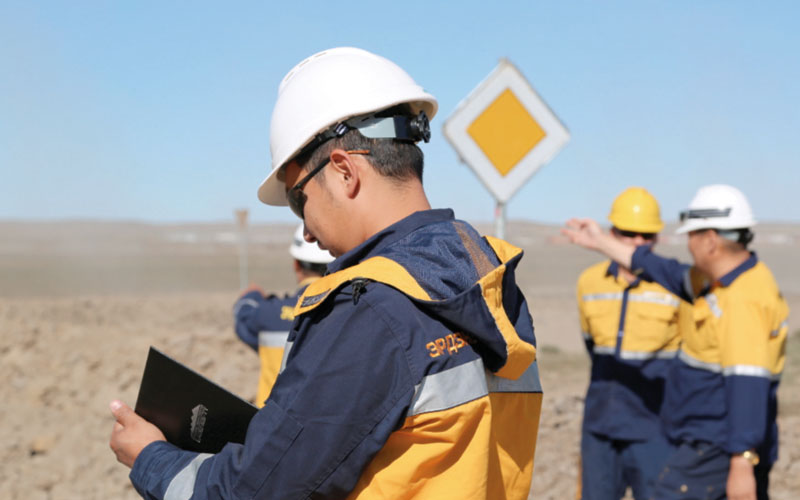With Mongolia finally starting to building better infrastructure in order to boost its coal exports, state-owned mining company Erdenes TT is confident that the foreign investment needed to complete its projects will soon come flooding in.

In Southern Mongolia – situated in the southern Gobi desert just 250km from the Chinese border – lies Tavan Tolgoi, one of the world’s largest untapped coking and thermal coal deposits.
Tavan Tolgoi has total estimated reserves of 7.4 billion tonnes, one quarter of which is high quality coking coal, and Mongolia’s largest state owned coal miner – Erdenes TT – has been in charge of developing the huge deposit’s largest section, Tsankhi.
Although Erdenes TT has already exported more than 900,000 tons of coal so far this year from its two pits in East and West Tsankhi (towards its target of 10 million tons in 2014), like the rest of coal mining industry in Mongolia, the company is having to face up to the current challenging climate.
“Over the last 2 years, the price of coal has been decreasing,” explains CEO of Erdenes TT, Batsuuri Yaichil. “However, we are still striving to overcome this difficulty. We are sure that we are quite competitive because our mine is very close to China, who is the biggest coal importer and largest consumer. Secondly, our mines are open pit mining, which means our extraction costs are lower.”
However, the main challenge for Mongolian coal mining is that the Tavan Tolgoi area has lacked the infrastructure needed to economically deliver coal to its markets.
“At the same time, we currently lack a wash plant,” says Mr. Batsuuri. “The company exports raw coal and there is no such benchmark price for our coal in the international coal market, thus, we are not able to sell our coal at higher prices. More than 20% of our total expenses are related to transport, and it is very expensive to transport by trucks. That is why we are working to solve these two issues.”
Indeed the company has recently signed an agreement with the China’s Shenhua to build a 19km cross border railway, while Mongolian Railways has already started work on a track to connect to the deposit to the Chinese rail network.
Erdenes TT also has plans in the pipeline to construct a $550 million coal-washing plant (which will eliminate ash, soil and rock to produce a longer lasting, cleaner and more valuable coal) with the help of foreign investors.
“We are working with Chinese, Korean, Japanese and US investors on financing, and several companies have expressed their interest to work with us to fund our projects,” reveals Mr. Batsuuri.
And while a deal is yet to be struck, the CEO is supremely confident that Erdenes TT will get the help it needs thanks to the lure of Mongolia’s lucrative resources, and that all Mongolians will stand to benfit.
“It is inevitable that we’ll have foreign investment to complete this project. We already have interested parties, with whom we are having negotiations. In the coming years, we will succeed, complete our project, and we will become one of the biggest coal producers. ETT is a very important company for Mongolia’s future development. For example, the citizens of Mongolia own 20 percent of the shares, and they hold high expectations for our project. We are doing our best to ensure that the project is a success.”
0 COMMENTS